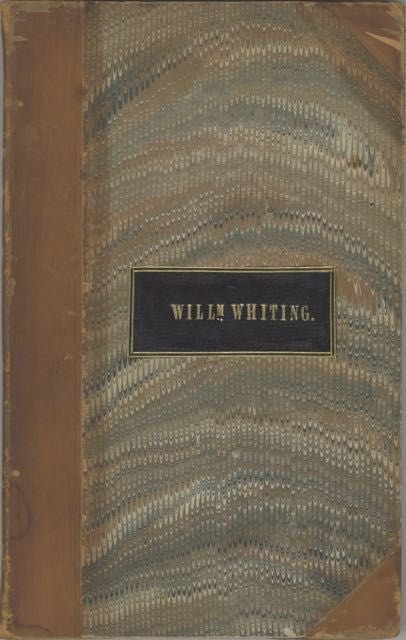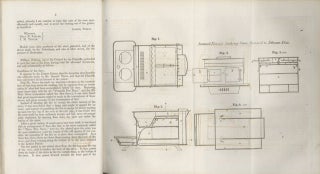Report of a trial for violation of the patent right of the 'American Air-Tight' cooking-stove, in the Circuit Court of the United States within and for the district of Massachusetts : wherein Elias Johnson and David B. Cox, were plaintiffs, and Peter Low and George W. Hicks, were defendants.
Boston: Dickinson Printing Establishment, Damrell & Moore, 1848.
Octavo (22.5 x 14 cm.), 60 pages, [1] folded leaf of plates; illustrated. With one folding copper-engraved plate and 12 text figures. Interleaved with blanks throughout. FIRST EDITION. Record of a patent infringement case between two neighboring stove foundries in Troy, New York. The plaintiffs, Elias Johnson and David B. Cox, who owned the Clinton Foundry (later owned by Fuller & Warren), sued their neighbors, Peter Low and George W. Hicks. The attorney for the plaintiffs, William Whiting, explains that the defendants, “flooded the market with a stove so nearly resembling the patented stove, both in name, form, size, ornaments, and construction, as to deceive any person of ordinary discrimination.” They even named the stove the “American Hot Air”, while the Johnson and Cox stove was the “American Air Tight. “[T]he Defendants desiring not only to take away the fruits of Pierce's invention, but of his taste also, actually directed their pattern makers to imitate Pierce's stove in every particular, even to the ornamental carving of the pattern, and the shape and position of the legs on the stove, so that it would be easy to pass off their stove for Pierce's” (page 12). Low and Hicks saw the strength of the suit, and settled. Contemporary calf over marbled boards, with black morocco cover label with the name "William Whiting" stamped in gold. Whiting's copy, who was a lawyer for the plaintiffs in this early and interesting American patent trial. [OCLC locates three copies (NYHS, Boston Athenaeum, Houghton Library)].
Price: $750.00


